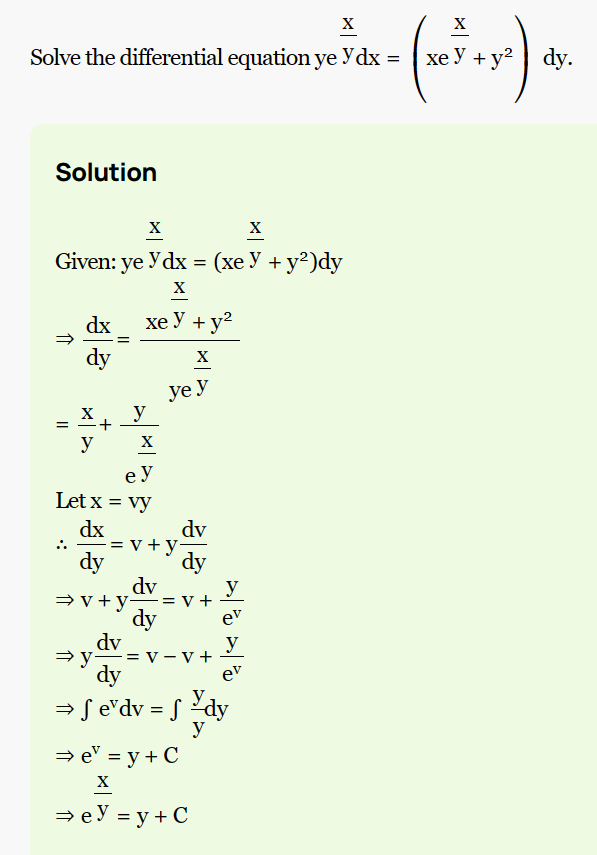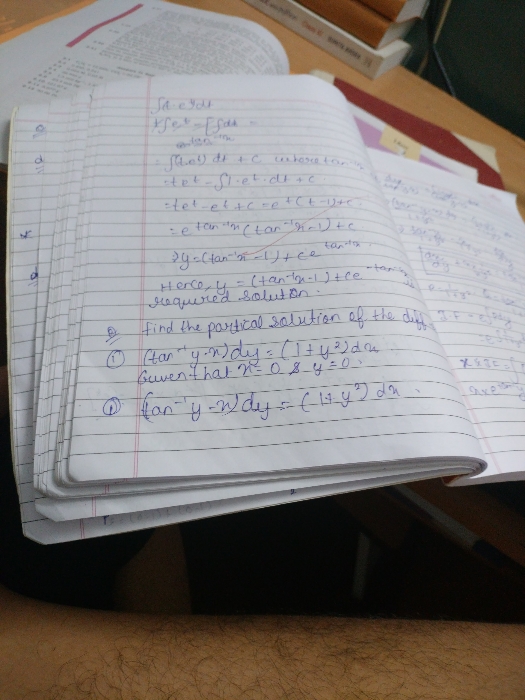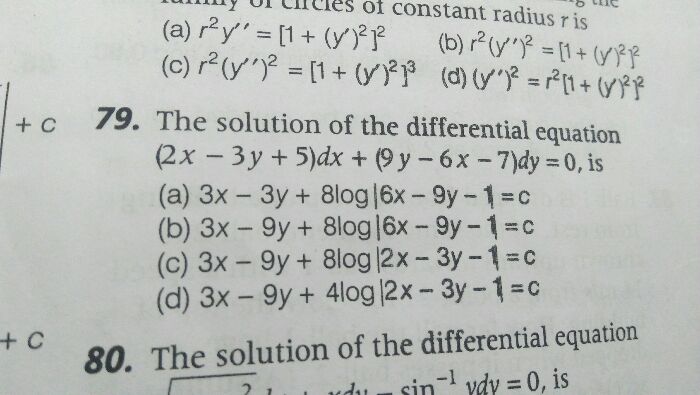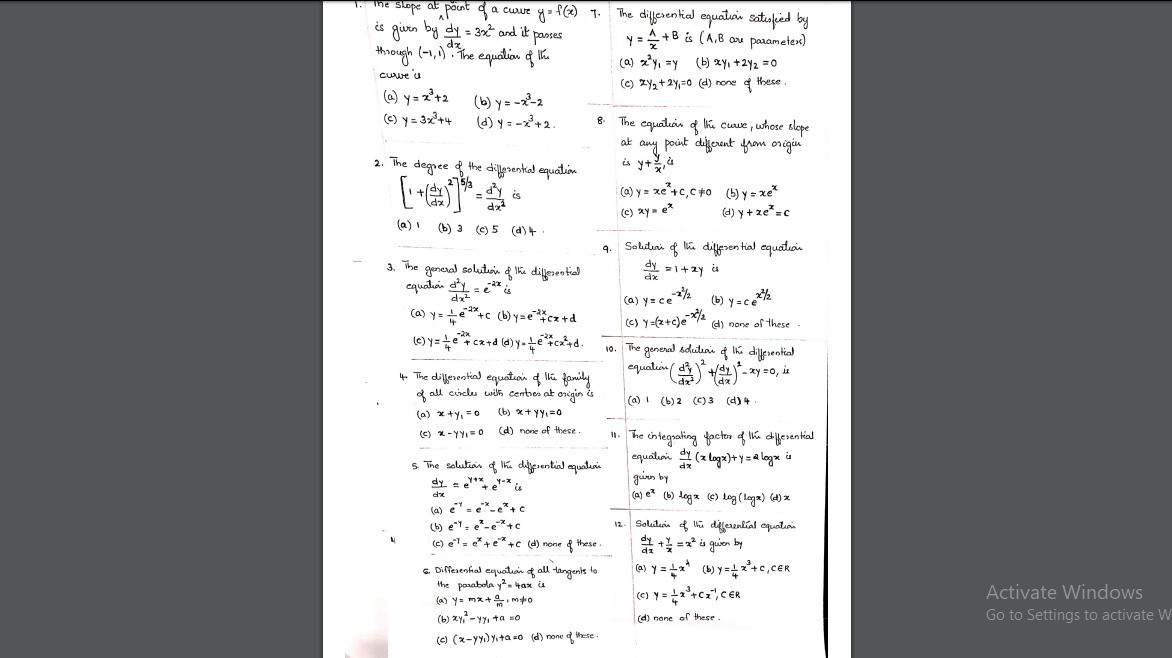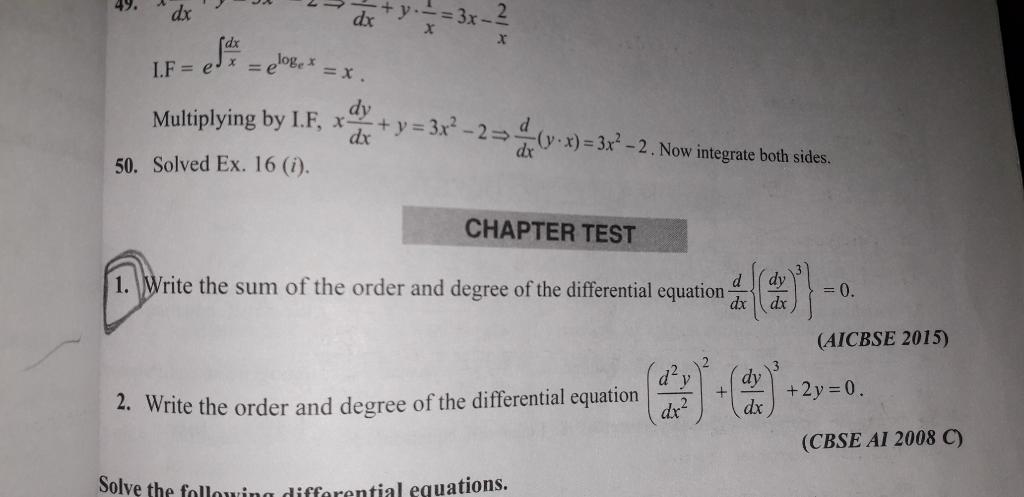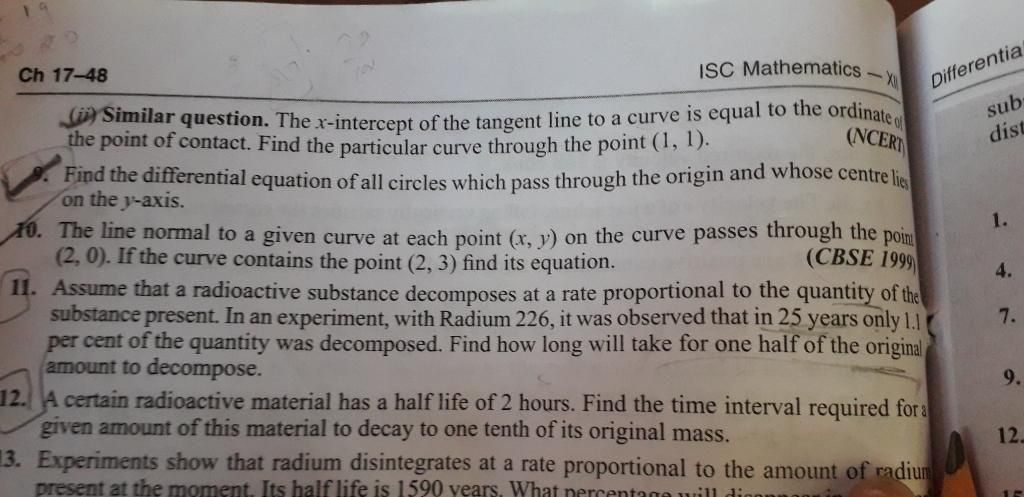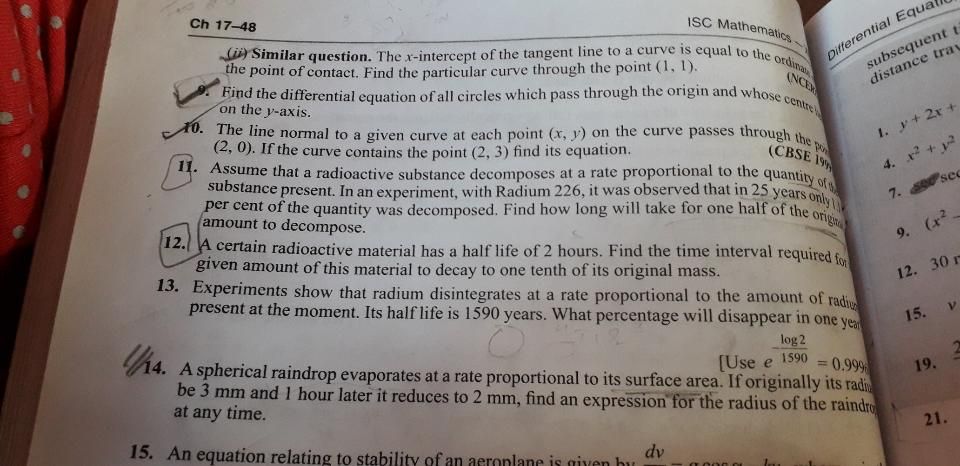CBSE Class 12-science Answered
how do we find order, degree and whether the given equation is linear or non-linear?
Asked by thajvirkaur | 02 Feb, 2012, 10:04: PM
Order of a differential equation - The order of a differential equation is the highest power of derivative which occurs in the equation. State the order of the following differential equations :

Solution to above questions:
1. The highest derivative is dy/dx, the first derivative of y. The order is therefore 1.
2. The highest derivative is d2y / dx2, a second derivative. The order is therefore 2.
3. The highest derivative is the second derivative y". The order is 2.
4. The highest derivative is the third derivative d3 / dy3. The order is 3.
2. The highest derivative is d2y / dx2, a second derivative. The order is therefore 2.
3. The highest derivative is the second derivative y". The order is 2.
4. The highest derivative is the third derivative d3 / dy3. The order is 3.
Degree of a differential equation - The power to which the highest order derivative is raised, in a differential equation. However, not every differential equation has a degree. If the derivatives occur within radicals or fractions the equation may not have a degree. If the equation can be rationalized and cleared of fractions with regard to all derivatives present, then its degree is the degree of the highest ordered derivative occurring in the equation.

Equations 1), 2) and 4) above are of the first degree and equation 3) is of the second degree. The differential equation (y'')2/3 = 2 + 3y' can be rationalized by cubing both sides to obtain (y'')2 = (2 + 3y' )3. Thus it is of degree two.
Linear equations are those that use only linear functions and operations. For example : differentiation, integration, addition, subtraction, logarithms, multiplication or division by a constant, etc. A linear differential equation has degree 1. Alternatively, a differential equation is linear if the dependent variable and all its derivative occur linearly in the equation. Which of these differential equations are linear?

Solution:
1. Both dy/dx and y are linear. The differential equation is linear.
2. The term y3 is not linear. The differential equation is not linear.
3. The term ln y is not linear. This differential equation is not linear.
4. The terms d3y / dx 3, d2y / dx 2 and dy / dx are all linear. The differential equation is linear.
2. The term y3 is not linear. The differential equation is not linear.
3. The term ln y is not linear. This differential equation is not linear.
4. The terms d3y / dx 3, d2y / dx 2 and dy / dx are all linear. The differential equation is linear.
Examples of non-linearity: trigonometric functions (sin, cos, tan, etc.), multiplication or division by variables.
Answered by | 02 Feb, 2012, 11:17: PM
Concept Videos
CBSE 12-science - Maths
Asked by ashwinskrishna2006 | 24 Dec, 2023, 04:59: PM
CBSE 12-science - Maths
Asked by rishavgautam705 | 26 Nov, 2023, 01:55: PM
CBSE 12-science - Maths
Asked by pranavmishra1108 | 17 Sep, 2023, 11:12: AM
CBSE 12-science - Maths
Asked by arjunsah797 | 22 May, 2022, 10:25: AM
CBSE 12-science - Maths
Asked by arunabhapaul123 | 25 Jan, 2022, 02:13: PM
CBSE 12-science - Maths
Asked by reddyanji405 | 05 Jun, 2020, 10:29: AM
CBSE 12-science - Maths
Asked by arijits949596 | 29 Apr, 2020, 10:26: PM
CBSE 12-science - Maths
Asked by lovemaan5500 | 16 Dec, 2019, 09:33: PM
CBSE 12-science - Maths
Asked by lovemaan5500 | 20 Aug, 2019, 05:12: PM
CBSE 12-science - Maths
Asked by lovemaan5500 | 20 Aug, 2019, 05:10: PM






